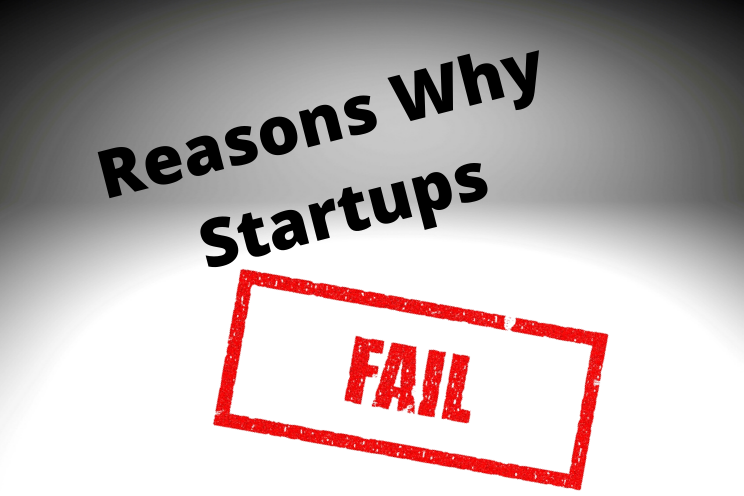
Starting a business is not as easy as most people think! Rarely is a business tuned into its niche that it can float effortlessly. But why do so many fail? How many startups fail? But here’s what you need to know before launching your firm.
Self-employment doesn’t look like it’s going away, and many people who are going into self-employment for the first time choose to work as sole traders. Compared to other structures, like limited companies, being a sole trader can be the most convenient option.
Many countries’ tax and employment systems give small enterprises options. Most require enterprises to be limited entities (or incorporated). Many allow you to declare that you are working alone without any workers—sole merchant in numerous nations. You can also form a limited liability partnership, ideal for professional services like accounting or law.
As a sole trader, you must seek the help of a business advisor. Contrary to widespread assumption, being a sole trader does not mean you work alone or don’t have workers. Some solo merchants seem like firms and employ dozens of people. ‘Solo trader’ merely describes your business form for tax purposes and thus the type of accounts you must keep.
Many startups fail, and this is not a new phenomenon. And how can you avoid becoming the next failed startup to make headlines? Check out below.
Consider the most typical causes of startup failure and how to prevent or overcome them.
Statistics from CB Insights reveal that a lack of market demand causes businesses to fail. Entrepreneurs should always check whether the market needs their product and whether it can help someone solve their problem. This stage may sound basic, but many firms fail because they design products no one wants to use.
How to avoid –
First, founders should forget about ideas like “my product is unique and ready for use.” Do not stop there. Startups and the development team should do this to ensure that they are all on the same page and understand the problem they are solving for their intended audience. Always do your homework before investing a lot of time, effort, and money. Neglect it.
A brilliant idea isn’t enough. Many startups have a concept or a product but lack the infrastructure to support it. A firm without a model is doomed to fail.
How to avoid:
Some firms utilize Lean Canvas or other similar platforms for business modelling. These platforms help companies and their development teams generate marketable products. It also asks startup owners simple questions on expenses, technologies, monetization, and marketing. A startup can thus design an effective product development plan and eventually construct a product that the market demands.
Many startups waste time and money due to a lack of direction. For example, some organizations prioritize networking and public relations over creating a product desired by their target market.
How to Avoid?
Focus solely on the product and users. Building an MVP and getting user feedback is a terrific method to succeed. An MVP helps the company gather early user feedback and enhance the product before releasing the full version.
The offensive team is another common startup issue. It’s harder than you think to pick a winning squad. Startups frequently have a crew that lacks support, isn’t fully engaged, or isn’t technically proficient.
How to Avoid?
Prevent this error by hiring a CTO early on. A CTO is critical to a company’s success since they oversee all technological challenges and guarantee the product meets end-user requirements.
The choice of technology impacts product development time, and inappropriate technology may cause unintended problems.
How to Avoid?
Choose technology carefully to avoid being outdone by competitors. Ruby on Rails has helped several startups prosper. Ruby on Rails’ ready-made plugins and modules make it ideal for startups. Using Ruby on Rails reduces development time, cost, and time to market (TTM).
A brilliant product idea and a solid technical team aren’t enough. Budget? Many entrepreneurs are so focused on creating the perfect product that they forget they need to make money quickly to keep the lights on. High salaries, high turnover rates, and poor profit margins cause budget issues.
How to Avoid?
To be competitive, invest only in essentials that deliver ROI. It’s also vital to focus on the marketing plan to attract as many clients as possible. Moreover, it is essential to seek help from a business tax accountant to keep your records on track.
The problem is that many entrepreneurs are unaware that their target audience needs their product. A lack of or inadequate marketing strategy might lead to a startup’s demise.
How to Avoid?
Avoid this mistake by conducting rigorous market research and establishing client profiles before launching a new firm. This study can help a company turn prospects into customers, and then they can sell their product via a blog, social media, websites, and advertising to make it well known.
These are the most typical blunders because of which startups fail. It’s critical to understand why many company concepts fail and it is most important to hire business advisory services to avoid these mistakes.
If you feel you need expert guidance on tax and numbers? Hire a professional accountant in Perth.